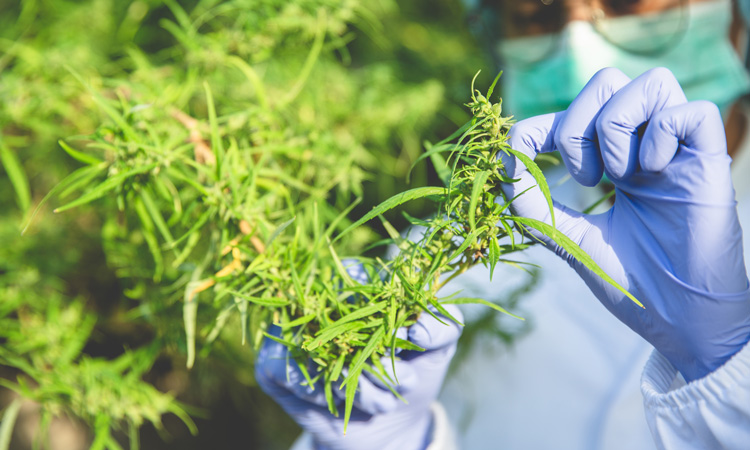Study finds THC rises in hemp due to genetics, not growing conditions
- Like
- Digg
- Del
- Tumblr
- VKontakte
- Buffer
- Love This
- Odnoklassniki
- Meneame
- Blogger
- Amazon
- Yahoo Mail
- Gmail
- AOL
- Newsvine
- HackerNews
- Evernote
- MySpace
- Mail.ru
- Viadeo
- Line
- Comments
- Yummly
- SMS
- Viber
- Telegram
- Subscribe
- Skype
- Facebook Messenger
- Kakao
- LiveJournal
- Yammer
- Edgar
- Fintel
- Mix
- Instapaper
- Copy Link
Posted: 31 January 2020 | Sam Mehmet (New Food) | No comments yet
Researchers from Cornell University studied hemp from two sites to determine whether the difference in growing conditions affected THC levels.


As the hemp industry grows, producers face the risk of cultivating a crop that can become unusable – and illegal – if it develops too much of the psychoactive chemical THC, according to researchers from Cornell University. The researchers have determined that a hemp plant’s propensity to ‘go hot’ – become too high in THC – is determined by genetics, not as a stress response to growing conditions, which is said to be contrary to popular belief.
“[People thought] there was something about how the farmer grew the plant – something about the soil, the weather getting too hot, or drought,” said Larry Smart, Horticulture Professor and senior author of the study, “but our evidence from this paper is that fields go hot because of genetics, not because of environmental conditions.”
Smart and his team conducted field trials at two sites, studying the genetics and chemistry of 217 hemp plants. They found that differences in growing conditions between the sites had no significant influence on which chemicals the plants produced. But when they compared the CBD (cannabidiol) and THC levels of each of the plants against their genomes, they found very high correlation between their genetics and the chemicals they produced.
Jacob Toth, first author of the paper and a doctoral student in Smart’s lab, developed a molecular diagnostic to demonstrate that the hemp plants in the study fell into one of three genetic categories: plants with two THC-producing genes; plants with two CBD-producing genes; or plants with one gene each for CBD and THC.
To minimise the risk of plants going hot, hemp growers ideally want plants with two CBD-producing genes, the researchers explained.
While conducting the research, the team also discovered that as many as two-thirds of the seeds they obtained of one hemp variety – which were all supposed to be low-THC hemp – produced THC above legal limits.
The researchers explained that they hope their work will help address this problem by providing breeders with easy-to-use genetic markers that can be utilised much earlier on seedlings and both sexes of plants.
Related topics
CBD hemp & cannabis, Environment, Food Safety, Regulation & Legislation, Research & development








